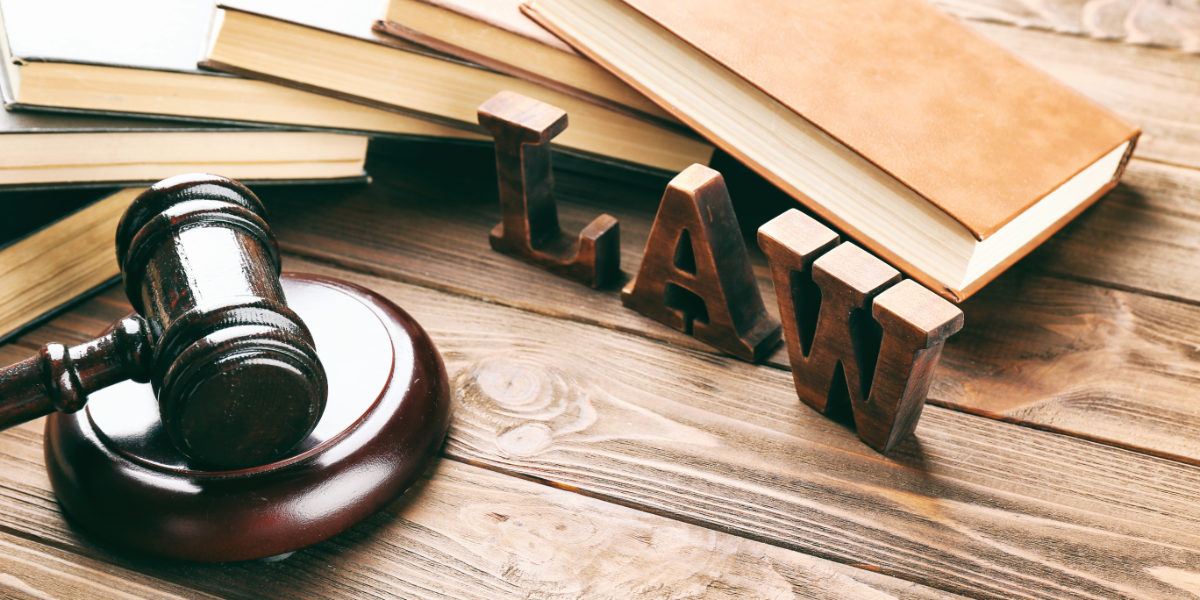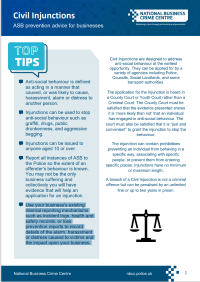
Civil Injunctions
Civil Injunctions are designed to address anti-social behaviour at the earliest opportunity. They can be applied for by a variety of agencies including Police, Councils, Social Landlords, and some transport authorities.
The injunction can contain prohibitions preventing an individual from behaving in a specific way, associating with specific people, or prevent them from entering specific places. Injunctions have no minimum or maximum length.
The application for the Injunction is heard in a County Court or Youth Court rather than a Criminal Court. The County Court must be satisfied that the evidence presented shows it is ‘more likely than not’ that an individual has engaged in anti-social behaviour. The court must also be satisfied that it is “just and convenient” to grant the injunction to stop the behaviour.
Gathering evidence to support a Civil Injunction is a key part of the process. Use the business’s existing internal reporting mechanisms to record evidence such as incident logs, health and safety records, or loss prevention reports to record details of the alarm, harassment or distress caused to victims and the impact upon your business.
Evidence for a Civil Injunction
The evidence gathered for a Civil Injunction will be used to show the Court the alarm, harassment, and distress caused by an individual and why prohibitions are needed to stop their behaviour. The evidence will align with the requested prohibitions, so a prohibition preventing an individual entering a certain location will be granted based on evidence showing the person being anti-social in that location.
Evidence can be from a variety of sources. It can include witness statements, banning letters, CCTV, diaries logging the incidents of anti-social behaviour, photographs of damage, litter or drugs paraphernalia, incident logs from security staff, or police records.
Find out more about Civil Injunctions and what you can do to make the case for the injunction as strong as possble:

